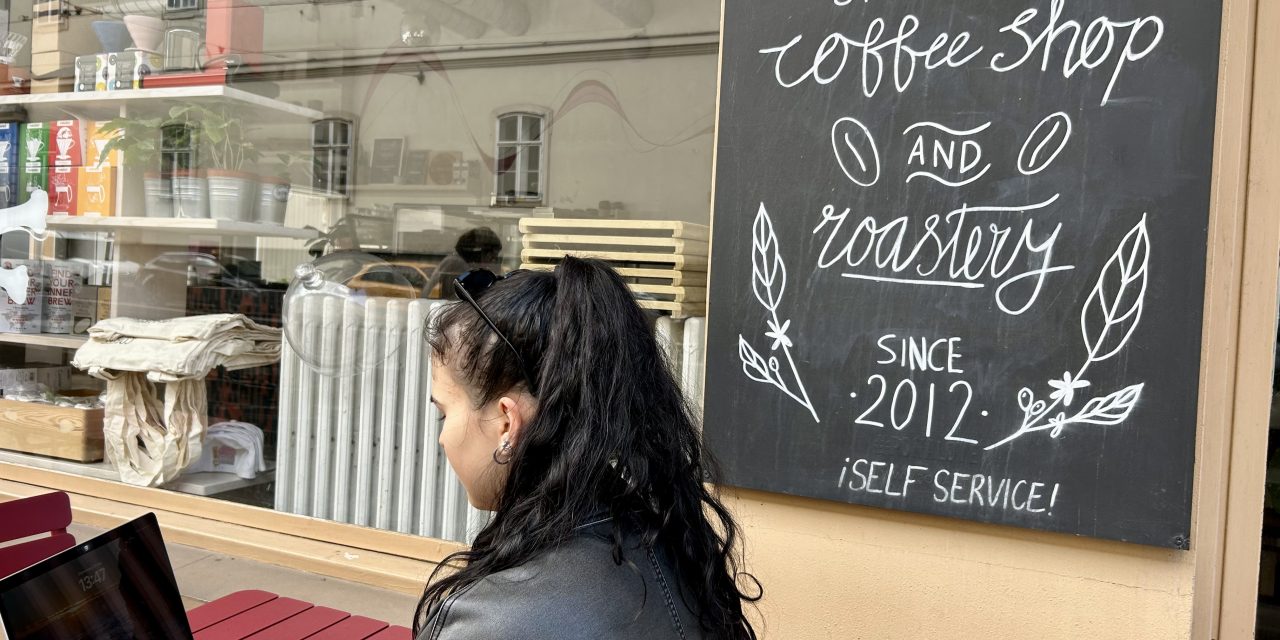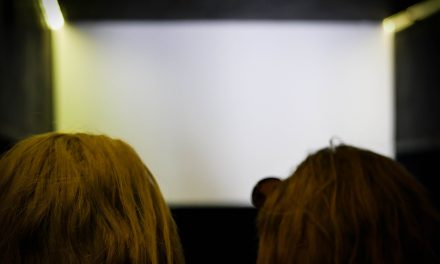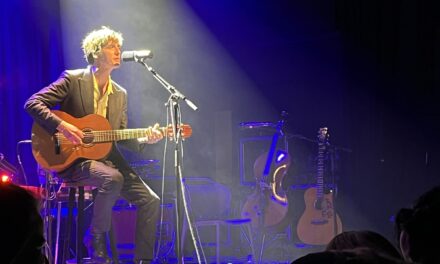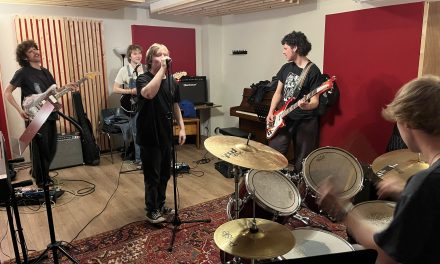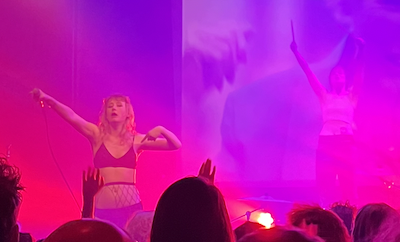Vienna’s café culture is at the crossroads of tradition and modernity, undergoing a process of change. Viennese café culture has been a tradition since 1683. This culture is part of the experience and is a symbol of urban identity, being part of a UNESCO cultural heritage site since 2011. Over the centuries, these spaces have been a perfect place for artists, writers, philosophers and locals. However, especially in recent years, the future of these cafés is in a process of continuous change, as younger generations prefer modern, fast-paced, digitally connected spaces adapted to their mobility and multitasking needs.
When you step into a Viennese café you feel that the coffee tradition has been carefully preserved. It’s a quiet, elegant space where you don’t feel the pressure to consume as quickly as possible and leave. Coffee is treated like a star to be respected. In hybrid cafes service is faster, but coffee is still a specialty. The focus is on efficiency, and internet connection is required.
History of Viennese cafés
The Viennese coffee house tradition has its origins in the late 17th century, closely linked to the end of the Siege of Vienna, when Georg Franz Kolschitzky, a Viennese citizen, obtained the first licence to open a coffee house in Vienna. It is believed that the custom of coffee drinking was introduced to the city when Ottoman troops left behind sacks of coffee in retreat. According to researcher Elisabeth Maleta in her study “The Joy of Everyday Life as a Lived Coffeehouse Experience”, what defines this culture is ‘the simultaneity of intimacy and sociability’. The coffeehouse provides a safe space where customers can engage in conversation and exchange ideas.
One of the main attractions of Vienna are the cafes as you can see in the visualization above. The question is: why have they gained popularity?
Hybrid vs traditional cafes
According to the academic article “The Joy of Everyday Life as a Lived Coffeehouse Experience”, Viennese coffeehouses were in the past not just a place to relax-they functioned as a “third space” between home and work. Here, people from all social classes could meet, read newspapers, write, or simply observe life around them. According to the official website of the City of Vienna (wien.gv.at), the elegant atmosphere, the specific furnishings (marble tables, Thonet chairs), and the very attentive service created a specific atmosphere that you couldn’t find in just any café. The attention to detail has turned a simple café into a distinctive element of Vienna. These elements gave them an air of refinement. In addition, cafés also became popular due to the fact that intellectually important people such as Sigmund Freud, Gustav Klimt, Stefan Zweig frequented them. They spent time in these spaces, and the Guardian article “The Passing of the Vienna Café” emphasizes precisely this historical intellectual function of the Viennese café.
However, according to Vanishing Vienna, many cafes have had to adapt to new trends and customer desires. Thus, some have adapted by integrating modern elements (expanded menus, Wi-Fi, specialty coffee), while some have retained their cultural essence.
Hybrid cafes are modern spaces that preserve and focus on the quality of the coffee, but also become a space for co-working, cultural events or selling local products, adapting to the contemporary lifestyle. These cafés are part of the third wave, offering a more diversified menu: vegan products, but also emphasizing sustainability.
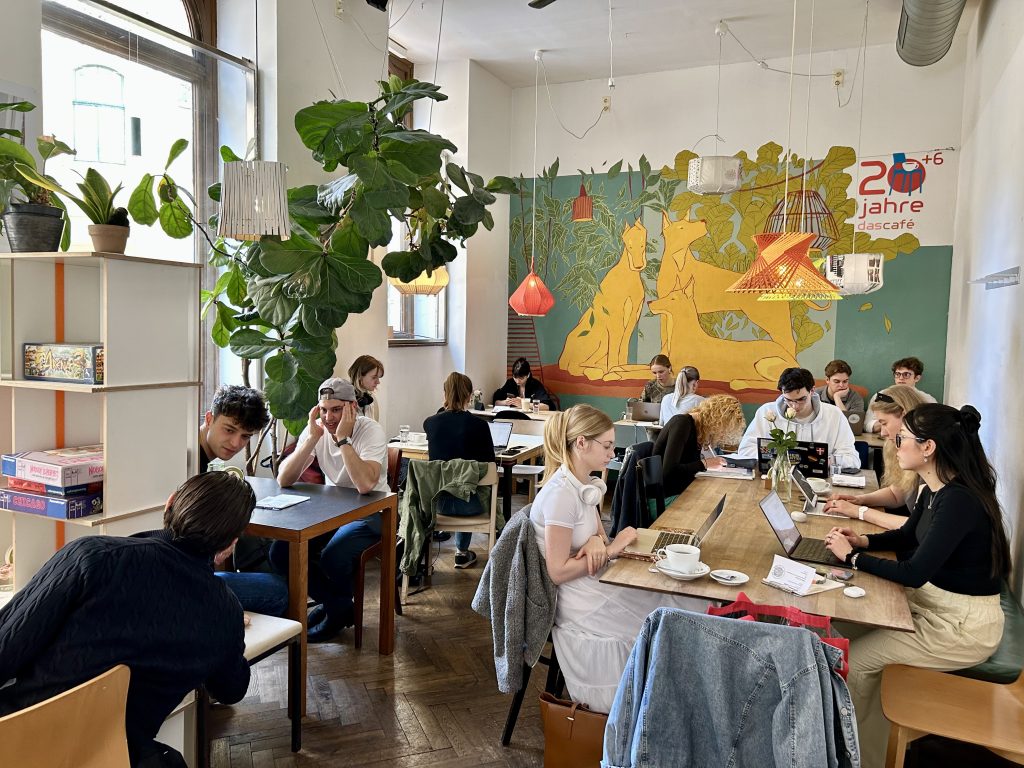
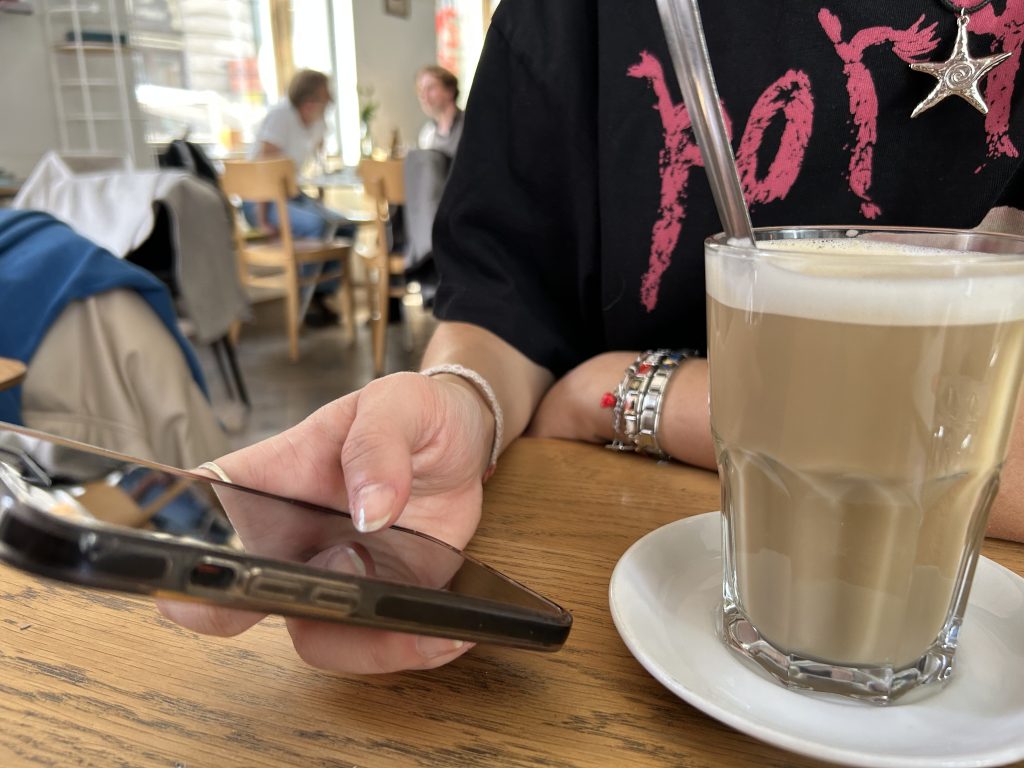
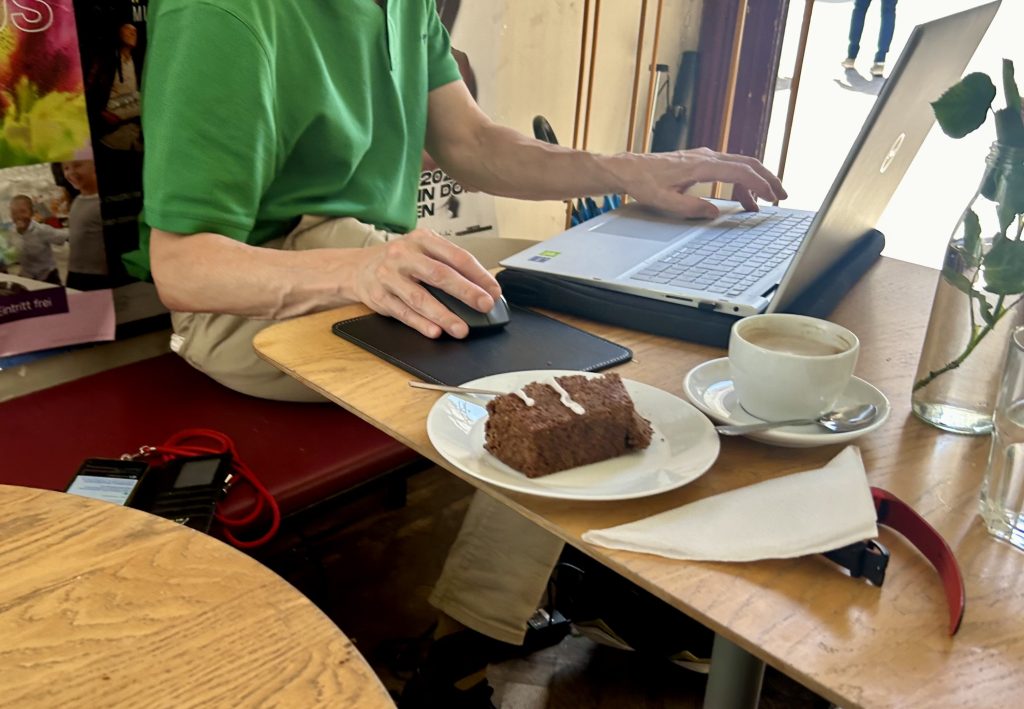
The real Viennese tradition can be found in cafés such as Cafe Central, Demel, Landtmann.
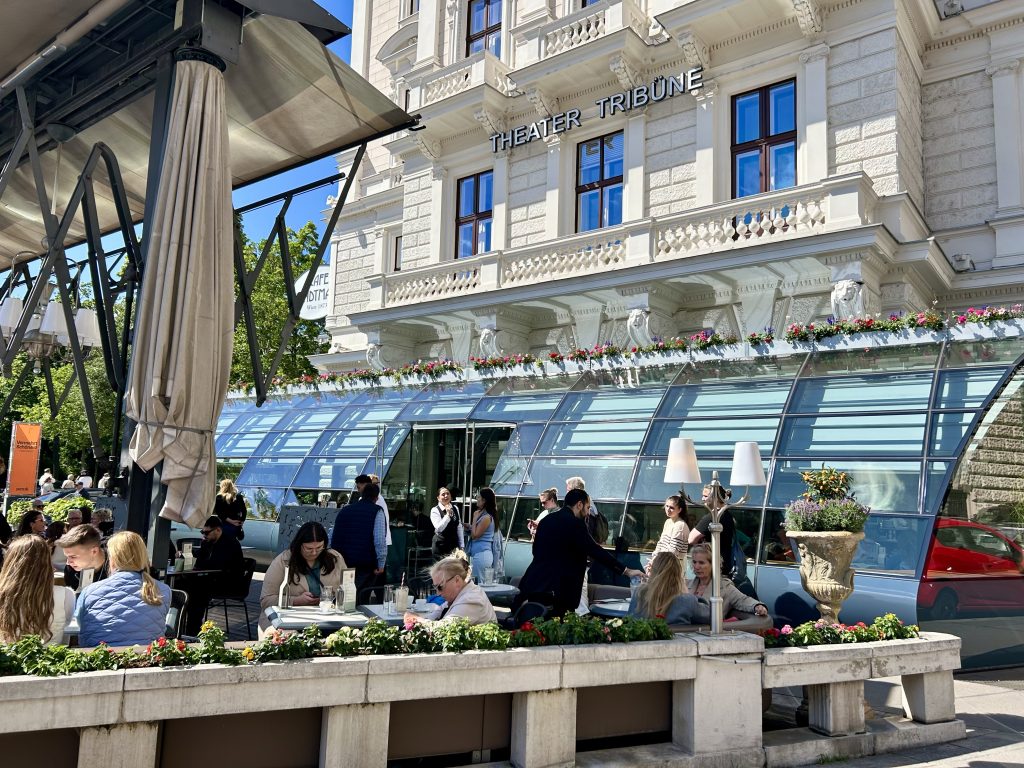
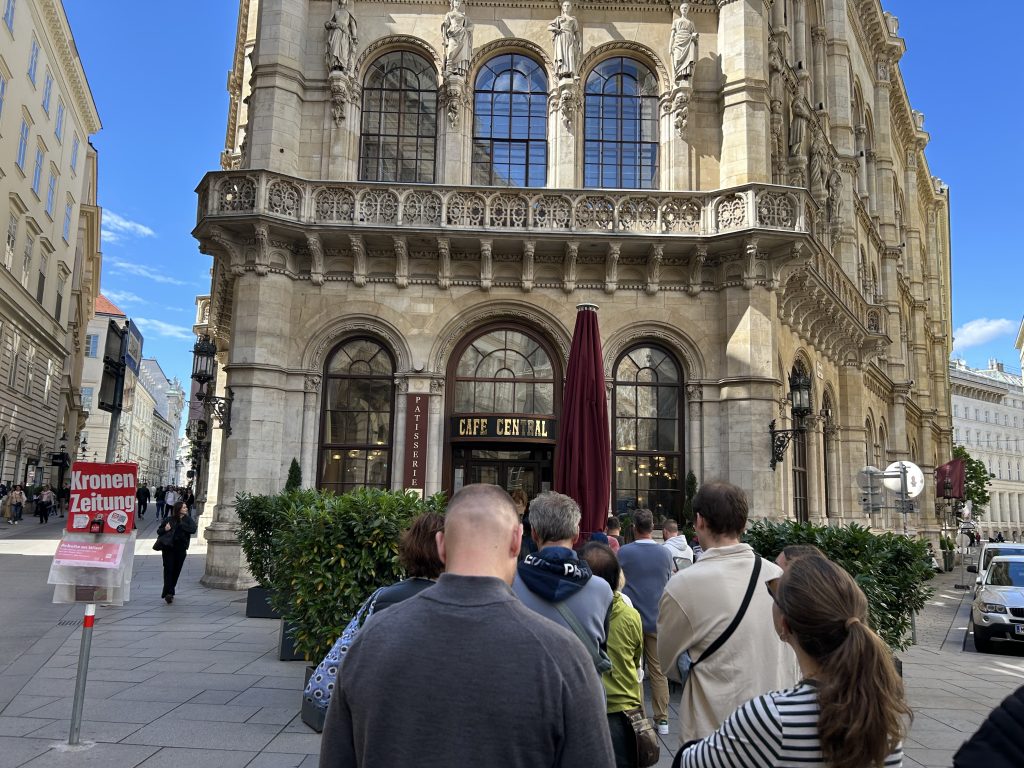
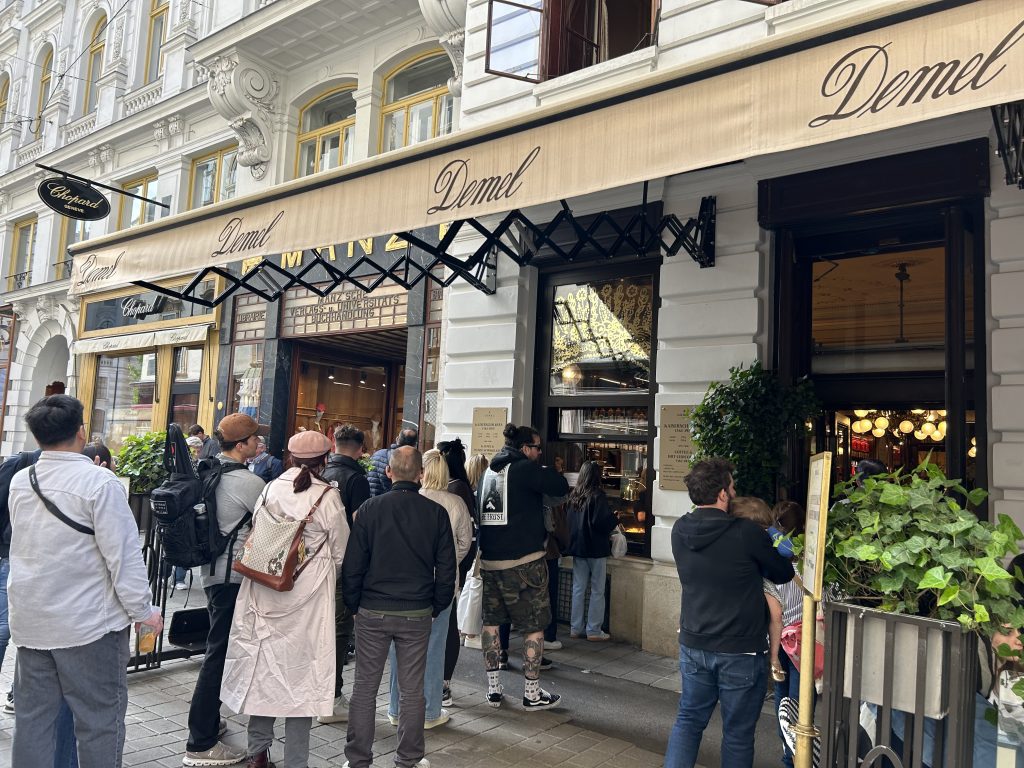
Current problem
Vienna’s traditional cafés are under pressure, both economically and culturally. One of the most talked about issues is the desires of the new generation of customers, especially freelancers and students, who use these spaces as personal offices to bring their lapt. Many order a single coffee and stay for hours, occupying tables without additional consumption. This consumption pattern creates economic hardship for historic cafés, which were designed as places for socializing and reflection, but not as free workspaces.
The Viennese government has not implemented direct measures to limit the use of laptops in cafés by customers. However, local authorities have tried to tackle the problem through various campaigns to support traditional cafés.
City Councillor for Economic Affairs Peter Hanke was quoted in a press release, saying: “The Viennese coffee houses are an important part of our urban culture. Great Austrian writers and artists were already inspired in the city’s venerable cafés. It is all the more important that the Viennese can support their favourite coffee house with this great initiative.”. And in 2022, Vienna’s local authorities have announced that they are teaming up with UniCredit, Bluecode and the Vienna Chamber of Commerce to launch a campaign to save iconic Viennese cafés. The campaign was called “Wir lieben unser Kaffeehaus” (We love our Kaffeehaus). Some cafés in Vienna have adopted their own rules to deal with the situation. According to an article in The Local, some locations are offering discounts to customers who choose to store their cell phones in a specially designated area, thus promoting social interaction and reducing the use of electronic devices.
Vienna’s cafes are in a process of continuous change, but coffee quality and exemplary service remain the main characteristics.
